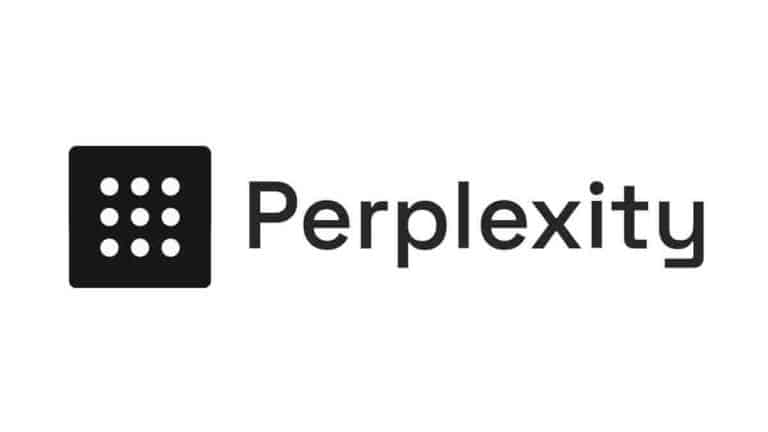Established in 2015, Mumbai-headquartered Kissht is a fintech start-up founded with the vision to provide quick and hassle-free credit financing to Indians. The fully digitised and automated fulfilment platform was founded by IIT graduates and former McKinsey partners Krishnan Vishwanathan and Ranvir Singh.
In a recent conversation with Analytics India Magazine, Co-founder and CTO Karan Mehta explained how the fintech start-up is leveraging artificial intelligence and machine learning technologies to provide financing. Karan has more than a decade of experience in AI, ML and deep tech and joined the leadership team at Kissht in 2015. An MS graduate from Carnegie Mellon University, Karan has earlier founded Swipe Payment Solutions and Karma Tech Solutions.
Kissht has a 100-member tech team, a 10-member product team, and 20 people working in the data science team.
Edited excerpts from the interview:
AIM: What are your flagship products?
Karan Mehta: We offer three products:
- Line of credit where we assign a limit of Rs 30,000 to the customer that they can draw down on whenever they choose.
- Traditional short-term personal loan for a small ticket size ranging between Rs 5,000 and Rs 20,000 and for a duration of not less than 12-months.
- Checkout finance or BNPL where we fund end purchase of customers through merchant partners.
During COVID-19, we also offered health insurance up to Rs. 1 lakh, quick cash up to 30K for businesses, and discounts on pharmacy bills and lab tests.
We have an interesting lineup of products for the future, including making health and life insurance available as a cross-selling product for the underserved segment. Additionally, we have an interchange link in the pipeline which can be used against merchants we have onboarded. We also plan to roll out two-wheeler loans.
AIM: How are you using AI and ML algorithms to disburse loans and credit services?
Karan Mehta: To provision instant customer loans, we use our proprietary software algorithm and credit marketplace platform to assess customers’ creditworthiness.
Additionally, we have created a ‘Kissht score’ to serve users without CIBIL scores. Using data-led architecture to study customers’ behaviour, online purchases, utility bill payment history, travel-ticketing history and social media presence, we develop a proxy metric to devise alternative creditworthiness evaluations.
Big data, analytics, and ML have been used in the Kissht ecosystem for tasks ranging from customising communication channels to determining the ideal frequency for each customer, identifying customers requiring payment reminders, and devising smart customer support queues to detect and route queries to different channels.
AIM: Explain the working of the ML algorithms.
Karan Mehta: Kissht uses big-data ML-based statistical models, which helps the team to fully understand two aspects of customer profiles — a., the customer’s ability to repay, and b., detect fraud; thus, preventing loan disbursal to such customers.
Our credit and fraud engines have been trained on the 15 million-plus signup users, as well as the two million-plus loan-taking customers. ML also helps in developing the risk and repayment models for this segment.
With a large percentage of our customers being self-employed or working in the unorganised sectors, there are irregular income patterns or part-cash salaries. Understanding their true income earning capacity using alternative data sets is critical, as is understanding their spending patterns, utility payments, bank credits and debits, and other financial transactions. It is not just about creating the model once but also about deploying it and creating a self-learning platform that improves on it over time. The overlay of the machine learning or self-learning platform keeps varying the coefficient as we come across industry shocks or macro shocks, ups and downs with the end-to-end digital stack.
AIM: Explain the tech stack of Kissht.
Karan Mehta: We maintain a singular and laser-sharp focus on providing completely digital, hassle-free, and instant credit access. Our cutting-edge technology platform manifests as a very smooth customer journey combined with a very powerful credit decision engine, resulting in a strong credit portfolio for the company. In the form of India stack, eMandates, eSign, UPI, and other digital innovations, Kissht has put to use the power of every digital innovation. As a digital platform, our biggest differentiator is the way we built and fine-tuned our credit and fraud engine using third-party data sources and a great analytics process.
The Kissht tech stack more closely resembles the tech stack at the modern consumer products (think Swiggy, OLA, etc.) than it does a traditional lender or bank. We are fully cloud-native and have an open-source first approach.
The tech stack is organised into several independent services – each service having the freedom to choose the language, framework, architecture and database that best suits their requirements. We have services in Python, PHP and GoLang, among other frameworks.
We have both Angular and React for frontends, but going forward, we have chosen to use React for all frontends. Currently, our Android and iOS apps are fully Native Apps, but we are soon moving to ReactNative apps to speed up the delivery of new products.
AIM: What tech tools do you use?
Karan Mehta: The product development and deployment lifecycle at Kissht make use of a large number of tools:
- Miro/Invision/Adobe XD – We use some combination of these to quickly convert thoughts and business ideas into tangible screens, allowing us to discuss, debate, refine, and iterate any new product idea.
- Slite – used for comprehensive product documentation, which is then easily available to all company members.
- Asana – for project planning and tracking sprints and product rollouts.
- Postman – single place for API Documentation, API sharing and collaboration, as well as API monitoring.
- Sagemaker Studio – apart from the tools used by the Analytics team, the technology team can quickly set up repeatable and shareable ML workflows with almost no overheads.
- Datadog – 360 monitoring of all production workloads with amazing monitoring capabilities.
- Bugsnag – tool to capture and prioritise bugs, both server and client side.
- ELK Stack – log analysis; one of the best examples of the power of open-source tools.
- DeployHQ/AWS CodePipeline – for our CI/CD requirements.
- Google Docs/Sheets/Forms – plays any and every role in our tech and product teams.
Apart from the core in-house tech stack, we make use of a large number of third-party integrations to offer a seamless customer experience – for payments and settlements; we use Yes Bank, IDFC, Razorpay, Setu, LotusPay, PayTM, Ingenico, and others. We use Hyperverge for their Computer Vision Products. We use Income Tax Department APIs for PAN Verification and Bureau Integration for the Credit Reports. We are also integrated with DigiLocker and CKYC services.
AIM: What do you look for in a potential employee wanting to join the tech team?
Karan Mehta: As a start-up, we believe in the hustle attitude, strong work ethic, and perseverance. Technical skills can be learnt over time, but character and passion for giving it the best every day – that is what we look for.
AIM: What key technologies have digital lending players adopted during the pandemic?
Karan Mehta: The nationwide lockdown accelerated digital adoption, and businesses have amplified their technology investments on cloud-based platforms such as Application Programming Interface (API) and Internet of Things (IoT). The combination of these technologies has boosted innovation and risk mitigation in the digital lending ecosystem.
AIM: What does the road ahead look like for Kissht?
Karan Mehta: We plan to expand deeper in the country’s Tier-II and Tier-III towns and cities, expanding the geographic reach to the top 300 locations in the next three years.
Additionally, we plan to complete the product portfolio within the lending segment. We will also be looking for exceptional tech talent to further enhance our deep technology capabilities in the domain of analytics, machine-learning-based algorithms, customer life cycle management, and loyalty programs.
Speaking about the numbers, in March this year, Kissht disbursed Rs 300 crore worth of loans. We crossed 10 million registered users in the last year, and today we have a registered user base of 16 million and close to three million unique borrowers. Our ambition is to reach the 100 million users mark by 2025. We expect our revenues to double from Rs 175 crore in FY21 to close to Rs 350 crore in FY22.



















































































